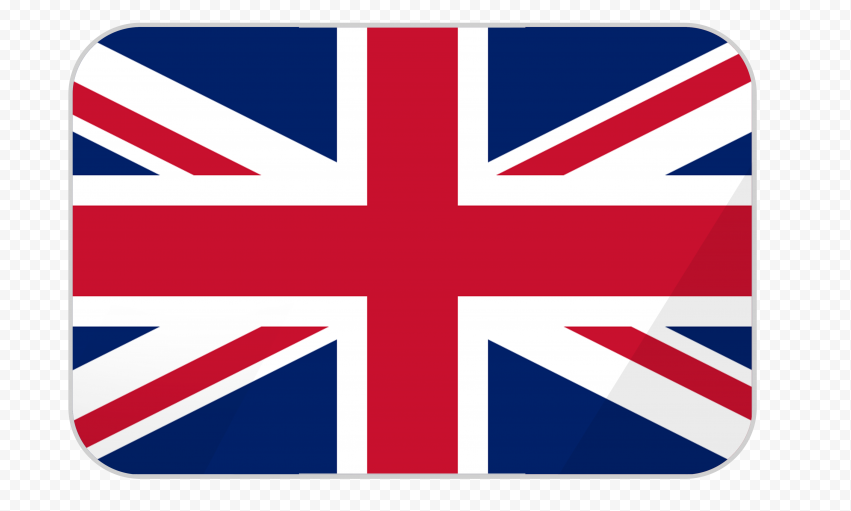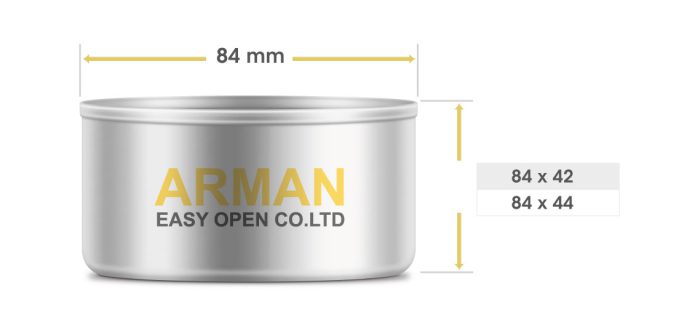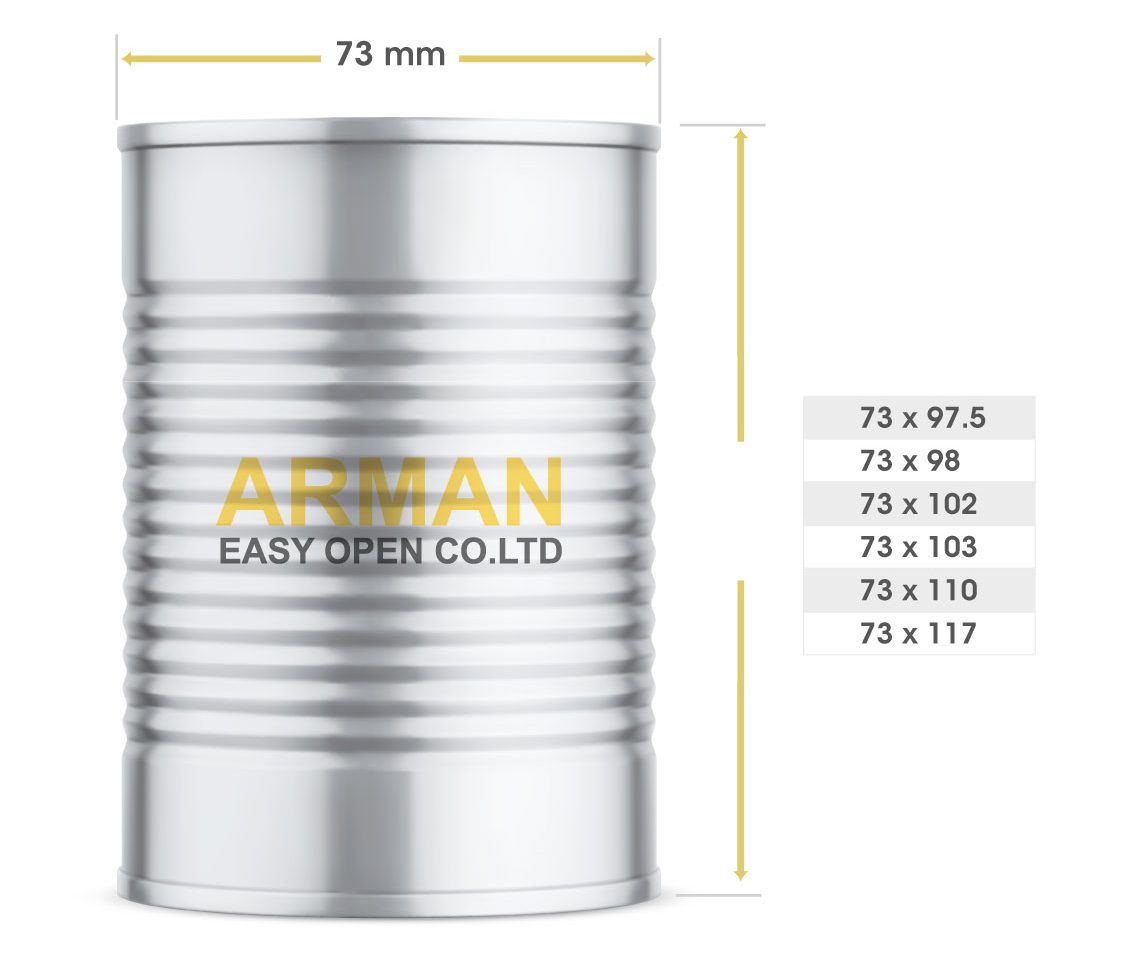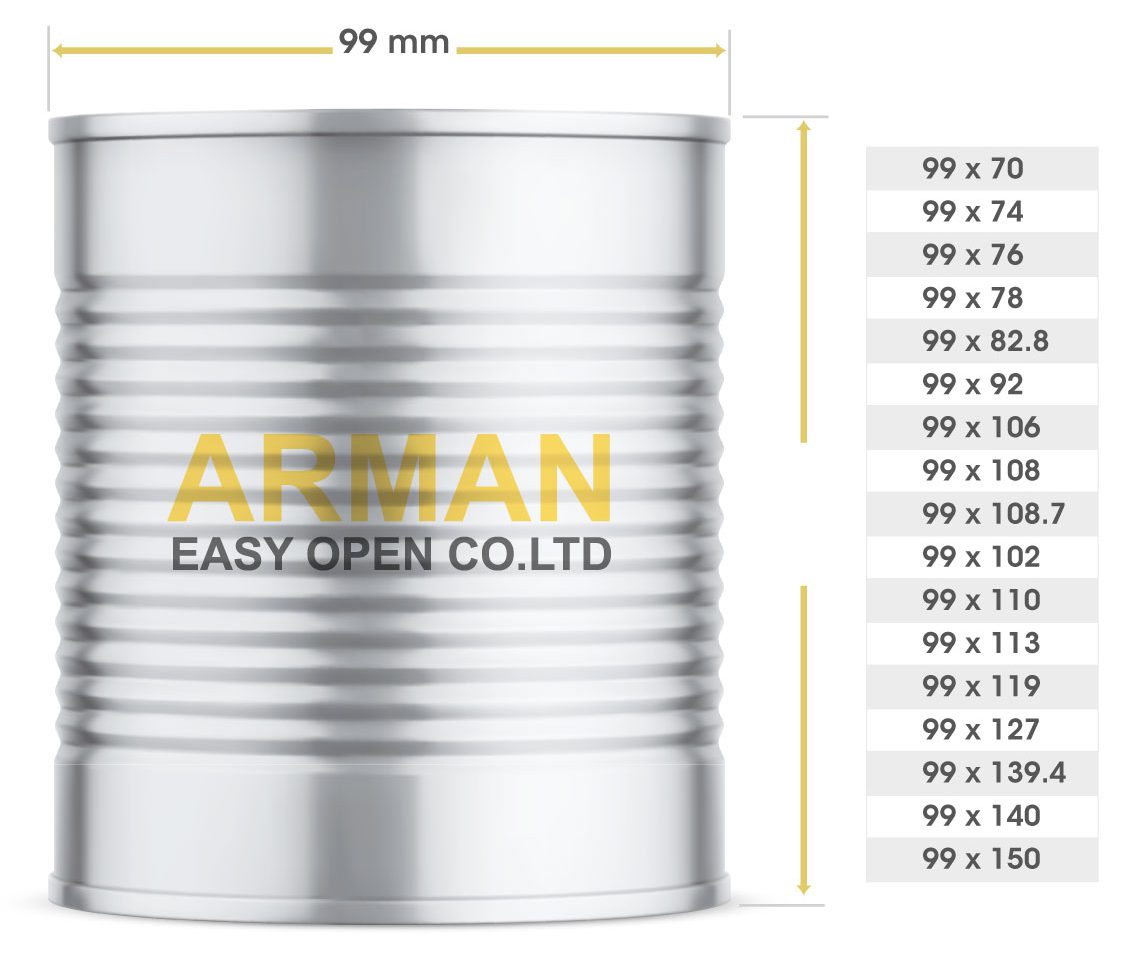Metal Packaging
Metal packaging refers to containers and packaging materials made primarily from metal, such as aluminum or steel. These types of packaging are commonly used for a variety of products, including food and beverages, cosmetics, pharmaceuticals, and household products.
Metal packaging offers several advantages, including durability, strength, and the ability to preserve the quality and freshness of the contents. It is also highly recyclable, making it an environmentally friendly option. Additionally, metal packaging can be designed in various shapes and sizes, making it versatile for different products and packaging needs.
Examples of metal packaging include aluminum cans for beverages, steel cans for food products such as soups and vegetables, metal tubes for cosmetics and pharmaceuticals, and metal lids or caps for jars and bottles. Overall, metal packaging plays a significant role in the packaging industry due to its numerous benefits and applications.
There are various types of metal packaging used for different purposes.
Some common types include:
1. Aluminum Cans: Widely used for beverages like soda, beer, and energy drinks due to their lightweight nature and ability to preserve the product's freshness.
2. Steel Cans: Often used for canned goods such as vegetables, soups, and fruits due to their durability and ability to withstand high temperatures during sterilization.
3. Metal Tins: These are versatile containers used for packaging items like candies, mints, cookies, and tea leaves. They come in various shapes and sizes and are often decorative.
4. Metal Bottles: Used for packaging beverages like spirits, as well as for some specialty drinks and oils. They provide a premium look and feel.
5. Metal Drums: Large, cylindrical containers used for storing and transporting bulk liquids such as oil, chemicals, and industrial fluids.
6. Metal Caps and Lids: Used for sealing glass jars and bottles containing products like sauces, jams, pickles, and condiments. They ensure the freshness and safety of the contents.
7. Aerosol Cans: Pressurized metal containers used for dispensing products like hairspray, cooking spray, insect repellent, and air fresheners.
These are just a few examples of the diverse range of metal packaging options available for different products and industries.
Aluminum cans are lightweight, recyclable containers primarily used for packaging beverages such as soda,, energy drinks, and canned water.
_1710863982.jpg)
They are popular for several reasons:
1. Lightweight: Aluminum cans are lightweight, making them easy to transport and handle. This characteristic also reduces shipping costs compared to heavier packaging materials.
2. Recyclable: Aluminum is highly recyclable, meaning aluminum cans can be recycled repeatedly without losing their quality. Recycling aluminum saves energy and resources compared to producing new aluminum from raw materials.
3. Preservation: Aluminum cans provide a protective barrier that preserves the freshness and quality of the contents, keeping beverages carbonated and free from light, air, and contaminants.
4. Convenience: Aluminum cans are convenient for consumers due to their easy-to-open pull-tab lids and compatibility with vending machines and coolers.
5. Sustainability: Aluminum cans have a lower environmental footprint compared to other packaging materials. They have a high recycling rate and are often made from recycled aluminum, reducing the need for virgin materials.
Overall, aluminum cans are a popular choice for beverage packaging due to their practicality, sustainability, and ability to maintain product quality.
Steel cans, also known as tin cans or tinplate cans, are cylindrical containers made primarily of steel and coated with a thin layer of tin or other metals to prevent corrosion and interaction with the contents. They are commonly used for packaging various food and beverage products.
Here are some key features and uses of steel cans:
1. Durability: Steel cans are known for their strength and durability, making them suitable for packaging a wide range of products, including soups, vegetables, fruits, meats, and seafood.
2. Preservation: Steel cans provide excellent protection for the contents, preserving their freshness, flavor, and nutritional value over an extended period. They are often used for long shelf-life products due to their ability to withstand high temperatures during the canning process.
3. Versatility: Steel cans come in various sizes and shapes, catering to different product packaging needs. They can be round, rectangular, or even specially shaped for unique products.
4. Recyclability: Like aluminum cans, steel cans are highly recyclable. They can be melted down and reused to produce new steel products, reducing the demand for virgin materials and minimizing environmental impact.
5. Usage: Steel cans are commonly used for packaging canned goods such as vegetables, fruits, beans, soups, sauces, meats, and fish. They are also used for non-food items like paints, lubricants, and chemical products.
6. Sustainability: Steel cans contribute to sustainability efforts by being recyclable and having a high recycled content in their production. Recycling steel cans helps conserve natural resources and reduce energy consumption and greenhouse gas emissions associated with steel production.

Overall, steel cans are a versatile and sustainable packaging option widely used for preserving and packaging various food and non-food products.
Metal bottles are reusable containers made primarily of metal, typically stainless steel or aluminum, designed for holding and transporting liquids. They are popular for various beverages and are often chosen for their durability, insulation properties, and eco-friendliness.
Here are some key features and uses of metal bottles:
1. Durability: Metal bottles are known for their durability and long lifespan compared to plastic bottles. They are resistant to dents, scratches, and breakage, making them ideal for outdoor activities and everyday use.
2. Insulation: Many metal bottles are designed with double-wall insulation, which helps keep beverages hot or cold for extended periods. This feature makes them suitable for carrying both hot and cold drinks, such as water, coffee, tea, and sports drinks.
3. Eco-friendliness: Metal bottles are a sustainable alternative to single-use plastic bottles. By choosing a reusable metal bottle, individuals can reduce their environmental impact by minimizing plastic waste and promoting reuse.
4. Hygiene: Metal bottles are easy to clean and maintain, making them a hygienic option for storing beverages. They are often dishwasher-safe and resistant to odor and stains.
5. Versatility: Metal bottles come in various sizes, shapes, and designs to suit different preferences and needs. They may feature screw-on caps, flip lids, or straw tops for easy access to beverages.
6. Customization: Metal bottles can be customized with designs, logos, and colors, making them popular for promotional purposes, gifts, and branding initiatives.
7. Usage: Metal bottles are commonly used for outdoor activities, such as hiking, camping, and sports, as well as for everyday hydration at home, work, or school. They are also popular among athletes, travelers, and eco-conscious individuals.
Overall, metal bottles offer a durable, reusable, and eco-friendly solution for carrying and storing beverages while promoting sustainability and reducing single-use plastic waste
There are various types of metal packaging used for different purposes.
Aluminum cans are lightweight, recyclable containers primarily used for packaging beverages such as soda,, energy drinks, and canned water.
_1710863982.jpg)
Steel cans, also known as tin cans or tinplate cans, are cylindrical containers made primarily of steel and coated with a thin layer of tin or other metals to prevent corrosion and interaction with the contents. They are commonly used for packaging various food and beverage products.

Metal bottles are reusable containers made primarily of metal, typically stainless steel or aluminum, designed for holding and transporting liquids. They are popular for various beverages and are often chosen for their durability, insulation properties, and eco-friendliness.
FAQs
Where is metal packaging used?
These types of packaging are commonly used for a variety of products, including food and beverages, cosmetics, pharmaceuticals, and household products.
What is the reason behind the popularity of aluminum cans?
Aluminum cans are a popular option for beverage packaging due to their practicality, durability, and ability to maintain product quality.
What is the advantage of aluminum recycling?
Aluminum recycling saves energy and resources compared to new aluminum production from raw materials.
What is the use of metal bottles?
metal bottles offer a durable, reusable, and eco-friendly solution for carrying and storing beverages
 +7929688-88-14
+7929688-88-14

 English
English
 Persian
Persian
 Russian
Russian
 Chinese
Chinese


 +7929688-88-14
+7929688-88-14




